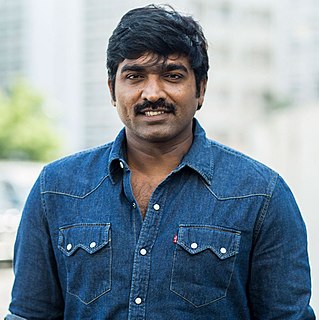A Quote by Jami Attenberg
What I try very hard to do is have an hour or so in the morning when I leave the house and don't have my phone with me. I'll go sit in a cafe and read and handwrite in my notebook and not be facing a screen. My head will be clear. I will be able to hear myself think. Because honestly for the rest of the day it's just screens, screens, screens.
Related Quotes
I think that's what we need more of: Asian-Americans on movie screens and TV screens where they're normalized. Where it's not about them being Asian or a person of color. It's just about them being a human. I think that's why sometimes when I see movies with an Asian family, but it's very stereotyped, I don't find that relatable.
When 'Pizza' released, I was a nobody. Initially, we managed to get only 100 screens. But, after its success, the producers of 'Naduvula Konjam Pakkatha Kaanom' got 150 screens and also released the film in the U.S. Now, distributors are keen to invest in my films because they feel I have face value.



































